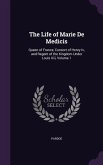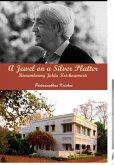In 1890, the author's maternal great-grandfather Chow Chih was the firstborn son of a wealthy family in Canton, China, who could have pursued virtually any career. But China was swirling in revolutions and counterrevolutions as warlords and foreign interlopers fought for control after 2,000 years of imperial rule. Dr. Sun Yat-sen said China had become "the poorest and weakest nation in the world. We occupy the lowest position in international affairs. Other men are the carving knife and serving dish; we are the fish and the meat." Chow chose to fight for his country and graduated as an officer from the first class of the prestigious Whampoa Military Academy in 1924. His military prowess caught the eye of a powerful warlord in north China who tried to woo him to lead an army. Chow chose instead to join Sun Yat-sen's new national army to fight the warlords and hopefully unify a splintered China. Chow served as a general for Sun Yat-sen and later became a four-star general for Chiang Kai-shek who described Chow as having "brilliance in all things military and deserves respect as the supreme commander of the military world." Like Sun Yat-sen, Chow was described by his soldiers as being selfless. Despite his high rank, Chow was regularly called to the front lines of China's civil war and the second Sino-Japanese War. As a voracious reader of Sun Tzu's The Art of War, Chow was a military genius famed for leading one hundred battles during the Chinese Civil War and World War II. Would he be able to successfully maneuver in a post-Nationalist government world? As the Communists took over to rule China in 1949, the East Coast of China seemed in chaos with fellow Nationalists jumping onto steamships and trains to escape to Hong Kong and Taiwan. But Chow had fought hard and long to unify his beloved China and chose to stay behind. He hoped he would be able to read the new Communist regime that was bent on hard change to drive China into modern times. The chaos of the Communist takeover then turned to terror.
Hinweis: Dieser Artikel kann nur an eine deutsche Lieferadresse ausgeliefert werden.
Hinweis: Dieser Artikel kann nur an eine deutsche Lieferadresse ausgeliefert werden.








